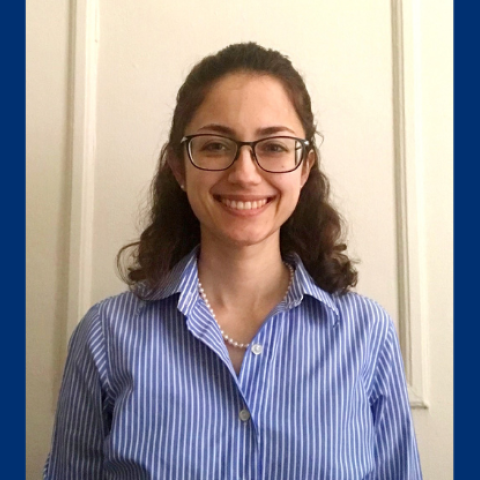Department of Population and Quantitative Health Sciences post-doctoral scholar and School of Medicine alumna Elina Misicka (GRS ‘22, epidemiology and biostatistics) has earned a fellowship grant from the National Multiple Sclerosis (MS) Society. The grant is awarded to promising young investigators whose research is relevant to the society’s three goals: stopping MS progression, restoring lost function and ending the disease.
Building on previous work by the School of Medicine’s Department of Population and Quantitative Health Sciences lab, Misicka is researching serum metabolite concentrations in the blood and identifying metabolites indicative of MS-related phenotypes—risk, disability severity and disease stage.
“This work plays an important role in understanding the underlying pathology of MS,” said Misicka. “Metabolites in the bloodstream reflect the influence of many factors simultaneously, such as genetics, nutrition and environmental exposures.”
Misicka’s mentor, Farren Briggs, PhD, says the research is cutting edge.
“She will be among the first to characterize changes in the metabolome occurring at the earliest stages of the disease, as well as the metabolomic events underlying early disease progression,” said Briggs. “The hope is that her work will not only highlight actionable biological mechanisms for therapeutic development but that they may be leveraged to develop biomarkers for multiple sclerosis risk and progression.”
Moving forward, Misicka says she will focus on the differences in metabolic profiles between males and females.
“There are a lot of sex-based differences regarding MS risk, presentation and severity,” said Misicka. “My hope is that by identifying metabolic biomarkers of the MS phenotypes that differ between males and females, we may be able to identify some of the biological processes responsible for this differing experience of the disease.”
Misicka's path to genetic epidemiology, she shares, was unexpected and encourages others who are just beginning their undergraduate degrees to be open to pursuing different areas of research that they may not have considered previously.
“When I began my research journey as an undergrad, I certainly didn’t anticipate ending up in the field of genetic epidemiology,” said Misicka. “But by focusing on the search for good people to work with, and skills to learn, I have become a more well-rounded and confident scientist.”


